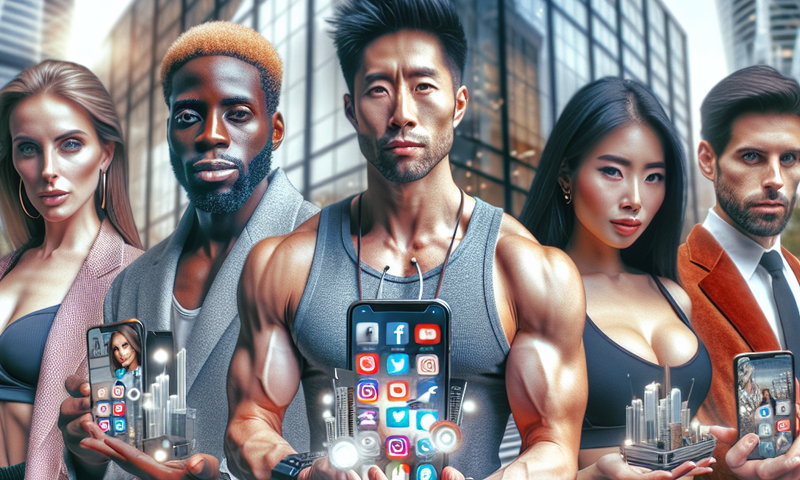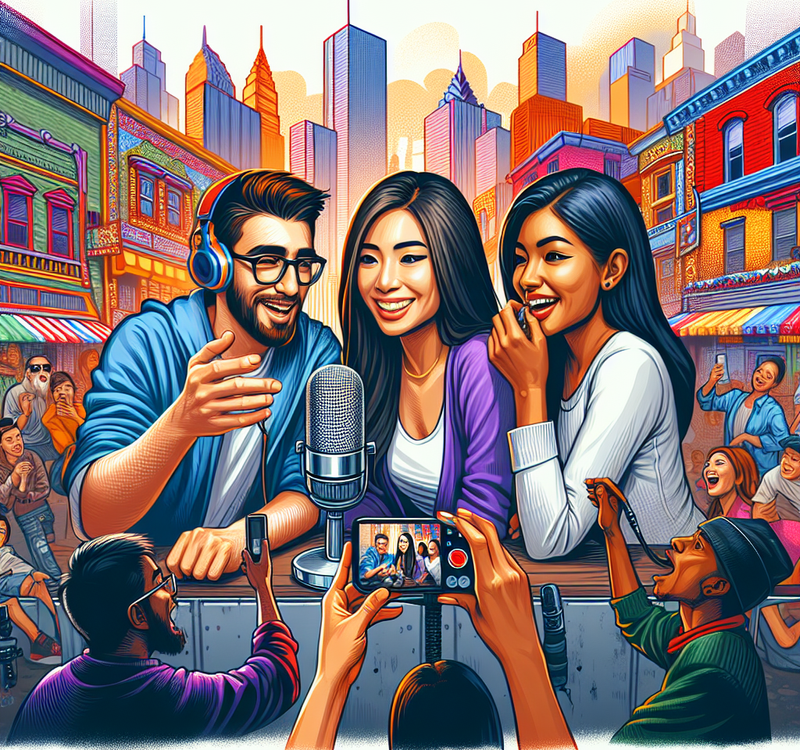
Influencer Marketing B2B: Harnessing the Power of Industry Thought Leaders for Effective Business Growth
6 December، 2023
Maximizing the Impact: How to Effectively Repurpose Influencer Content
7 December، 2023Mastering the Transition from Traditional Marketing to Influencer Marketing

Keywords: How to transition from traditional marketing to digital marketing, How is influencer marketing better than traditional marketing, How influencer marketing has changed marketing, Can influencer marketing ever fully replace traditional modes of advertising, trends that are driving shifts from traditional marketing practices to digital marketing practices, will digital marketing replace traditional marketing, transition from traditional marketing to e marketing, what is digital marketing blog, background of the study about digital marketing, traditional and nontraditional advertising, growth of digital marketing, history of digital marketing
Title: Mastering the Transition from Traditional Marketing to Influencer Marketing
SEO Meta-Description: Learn how to successfully transition from traditional marketing to digital marketing and the rise of influencer marketing in the industry. Understand the advantages of influencer marketing over traditional advertising and the trends driving the shift. Discover how to leverage digital marketing practices and gain insights into the background and growth of this dynamic field.
Introduction:
In today's digital age, traditional marketing methods are no longer as effective as they used to be. With the rise of social media and the increasing influence of online content creators, businesses are embracing influencer marketing as a powerful strategy to promote their products and services. In this article, we will explore the transition from traditional marketing to influencer marketing and how it has reshaped the marketing landscape.
Heading 1: Mastering the Transition from Traditional Marketing to Influencer Marketing
As the marketing landscape continues to evolve, businesses need to adapt their strategies to stay relevant in the digital era. Transitioning from traditional marketing to influencer marketing can be a daunting task, but with the right approach, it can lead to significant success. Here are some key steps to master this transition:
Heading 2: Assessing Current Skills and Knowledge
Before embarking on a journey into influencer marketing, it is essential to assess your current skills and knowledge. Traditional marketing techniques may not directly translate into the digital realm, so it's crucial to identify any gaps and areas for improvement. By understanding your strengths and weaknesses, you can better equip yourself for the transition.
Heading 3: Learning the Basics of Digital Marketing
To effectively transition to influencer marketing, it is essential to have a solid understanding of the basics of digital marketing. Familiarize yourself with concepts such as search engine optimization (SEO), social media marketing, content marketing, and email marketing. These skills will serve as a foundation for implementing successful influencer campaigns.
Heading 4: Choosing a Niche
Influencer marketing is all about finding the right influencers who align with your brand's values and target audience. As you make the transition, take the time to define your niche and identify the specific audience you want to target. This will help you find influencers who have a genuine connection with your target market and can effectively promote your products or services.
Heading 5: Updating Resumes and Online Presence
In the digital world, your online presence plays a vital role in your credibility and visibility. As you transition to influencer marketing, ensure that your resume and online profiles accurately reflect your expertise in digital marketing. Highlight any relevant certifications, courses, or projects that demonstrate your commitment to learning and mastering this field.
Heading 6: Seeking Feedback and Mentorship
Transitioning from traditional marketing to influencer marketing can be challenging, but it doesn't mean you have to do it alone. Seek feedback from industry experts, mentors, and peers who have experience in influencer marketing. Their guidance and insights can help you navigate the transition more effectively and avoid common pitfalls.
Heading 7: Continuing to Learn and Experiment
Influencer marketing is a constantly evolving field, so it's crucial to stay updated with the latest trends, strategies, and technologies. Continuously educate yourself, attend webinars, workshops, and conferences, and experiment with different approaches to find what works best for your brand. The willingness to learn and adapt is key to mastering influencer marketing.
Heading 8: Why Influencer Marketing is Better than Traditional Marketing
Influencer marketing offers several advantages over traditional modes of advertising. Here are some reasons why businesses are increasingly turning to influencer marketing:
-
Authenticity: Influencers have built a loyal following based on their expertise and credibility. When they endorse a product or service, their followers perceive it as genuine and trustworthy.
-
Targeted Reach: Influencers have a specific niche audience that aligns with your target market. By partnering with the right influencers, you can reach your desired audience more effectively compared to mass marketing campaigns.
-
Engagement and Interaction: Influencers have a direct line of communication with their followers. This allows for better engagement and interaction, leading to higher brand awareness and customer loyalty.
-
Cost-effectiveness: Unlike traditional forms of advertising, influencer marketing can be more cost-effective. It offers a higher return on investment due to the targeted reach and engagement it generates.
Heading 9: How Influencer Marketing has Changed Marketing
Influencer marketing has brought about a paradigm shift in the way businesses approach marketing. Here are some ways influencer marketing has changed the marketing landscape:
-
Rise of Micro-influencers: While celebrities used to be the go-to influencers, the rise of micro-influencers has democratized influencer marketing. These influencers have smaller but highly engaged audiences, making them more accessible and relatable to specific target markets.
-
User-generated Content: Influencer marketing encourages user-generated content, where consumers themselves become brand advocates. This not only helps create a sense of authenticity but also fosters a sense of community around the brand.
-
Influencers as Content Creators: Influencers are not just endorsers; they have become content creators in their own right. They produce engaging and relevant content that resonates with their audience, making them valuable partners for brands.
-
Integration of Social Media: Influencer marketing relies heavily on social media platforms like Instagram, YouTube, and TikTok. Brands now have to adapt their marketing strategies to effectively leverage these platforms and connect with their target audience.
Heading 10: Can Influencer Marketing Ever Fully Replace Traditional Modes of Advertising?
While influencer marketing has proven to be highly effective, it is unlikely to completely replace traditional modes of advertising. Traditional advertising methods still have their place in certain contexts, such as mass marketing campaigns or reaching a broader audience. However, influencer marketing offers a more targeted and authentic approach that resonates with consumers in the digital age.
Heading 11: Trends Driving Shifts from Traditional Marketing to Digital Marketing Practices
Several trends are driving the shift from traditional marketing practices to digital marketing:
-
Increased Mobile Usage: With the widespread use of smartphones and tablets, consumers are spending more time engaging with digital content. This shift has prompted businesses to invest more in digital marketing strategies.
-
Social Media Dominance: Social media platforms have become integral to people's lives, providing businesses with an opportunity to reach a wide audience. The ability to target specific demographics and interests has made social media marketing a powerful tool.
-
Personalization and Customization: Digital marketing allows for personalized and customized experiences that resonate with individual consumers. This level of personalization is difficult to achieve with traditional marketing methods.
-
Data-driven Marketing: Digital marketing provides access to vast amounts of data, allowing businesses to analyze consumer behavior and tailor their marketing efforts accordingly. This data-driven approach leads to more effective and efficient marketing campaigns.
Heading 12: Will Digital Marketing Replace Traditional Marketing?
While digital marketing has become increasingly prominent, it is unlikely to replace traditional marketing entirely. Traditional marketing methods still hold value in certain contexts and industries. However, digital marketing offers unique advantages, such as cost-effectiveness, targeted reach, and measurable results, that make it an essential component of any modern marketing strategy.
Heading 13: Transitioning from Traditional Marketing to E-marketing
E-marketing, also known as electronic marketing, refers to all forms of marketing conducted online. Transitioning from traditional marketing to e-marketing requires a shift in mindset and an understanding of the digital landscape. Here are some key steps to make this transition:
-
Embrace Technology: E-marketing relies heavily on technology, so it's crucial to familiarize yourself with various digital tools and platforms. This includes social media platforms, email marketing software, analytics tools, and content management systems.
-
Understand Online Consumer Behavior: E-marketing requires an understanding of how consumers behave online. Study consumer trends, online shopping habits, and digital marketing best practices to ensure your e-marketing efforts are effective.
-
Focus on Content Marketing: Content marketing plays a significant role in e-marketing. Create valuable and engaging content that educates and entertains your target audience. This can include blog posts, videos, podcasts, and social media content.
-
Learn Search Engine Optimization (SEO): SEO is crucial for ranking higher in search engine results and driving organic traffic to your website. Familiarize yourself with SEO best practices, keyword research, and optimizing your website for search engines.
Heading 14: What is Digital Marketing Blog?
A digital marketing blog is an online platform where marketers, industry experts, and enthusiasts share insights, tips, and strategies related to digital marketing. These blogs cover a wide range of topics, including SEO, content marketing, social media marketing, email marketing, and more. They serve as valuable resources for staying updated with the latest trends and best practices in the digital marketing industry.
Heading 15: Background of the Study about Digital Marketing
The study of digital marketing focuses on understanding the evolution of marketing strategies in the digital era. It explores the impact of technology on consumer behavior, marketing communication channels, and the effectiveness of various digital marketing techniques. The background of the study about digital marketing provides a foundation for understanding the current trends and practices in the industry.
Conclusion:
Mastering the transition from traditional marketing to influencer marketing is essential for businesses looking to thrive in the digital age. By assessing current skills, learning the basics of digital marketing, and embracing the power of influencers, businesses can effectively reach their target audience and drive meaningful results. Remember, the key to success lies in continuous learning, experimentation, and adaptation.
FAQs:
-
What is influencer marketing?
Influencer marketing is a marketing strategy that involves collaborating with influential individuals who have a dedicated following on social media. These individuals, known as influencers, promote products and services to their audience, driving brand awareness and sales. -
How do I find the right influencers for my brand?
Finding the right influencers for your brand requires research and careful consideration. You can use social media platforms, influencer marketing tools, or seek recommendations from industry experts. Look for influencers who align with your brand values, target audience, and have an engaged following. -
What is the ROI of influencer marketing?
The ROI of influencer marketing varies depending on various factors such as campaign goals, industry, and influencer selection. However, influencer marketing has proven to be effective in driving brand awareness, engagement, and conversions when executed strategically. -
How do I measure the success of my influencer marketing campaigns?
To measure the success of your influencer marketing campaigns, you can track metrics such as reach, engagement (likes, comments, shares), website traffic, conversions, and sales. Use analytics tools and unique campaign URLs to attribute the results to your influencer efforts. -
How can Araboost help with influencer marketing campaigns in the MENA region?
Araboost is a cutting-edge influencer marketing platform designed specifically for the MENA region. It offers advertisers an effortless and seamless experience comparable to running ads on major digital ad platforms. With Araboost, advertisers can automate influencer selection, campaign management, and performance estimation, making influencer marketing more accessible and effective. Visit Araboost at [https://araboost.com] for more information.
Keywords: transition from traditional marketing to digital marketing, influencer marketing, traditional modes of advertising, trends in digital marketing, will digital marketing replace traditional marketing, history of digital marketing, traditional and nontraditional advertising
Keywords: transition from traditional marketing, influencer marketing, digital marketing practices, trends, history of digital marketing, growth of digital marketing
Keywords: marketing transition, influencer marketing, digital marketing, growth, trends, traditional modes of advertising
Keywords: digital marketing transition, influencer marketing, trends, growth, traditional marketing methods
Keywords: transition from traditional marketing, influencer marketing, digital marketing trends, growth, effectiveness
Keywords: influencer marketing, traditional marketing, digital marketing transition, trends, growth, future of marketing
Keywords: traditional marketing, influencer marketing, digital marketing, transition, trends, growth



